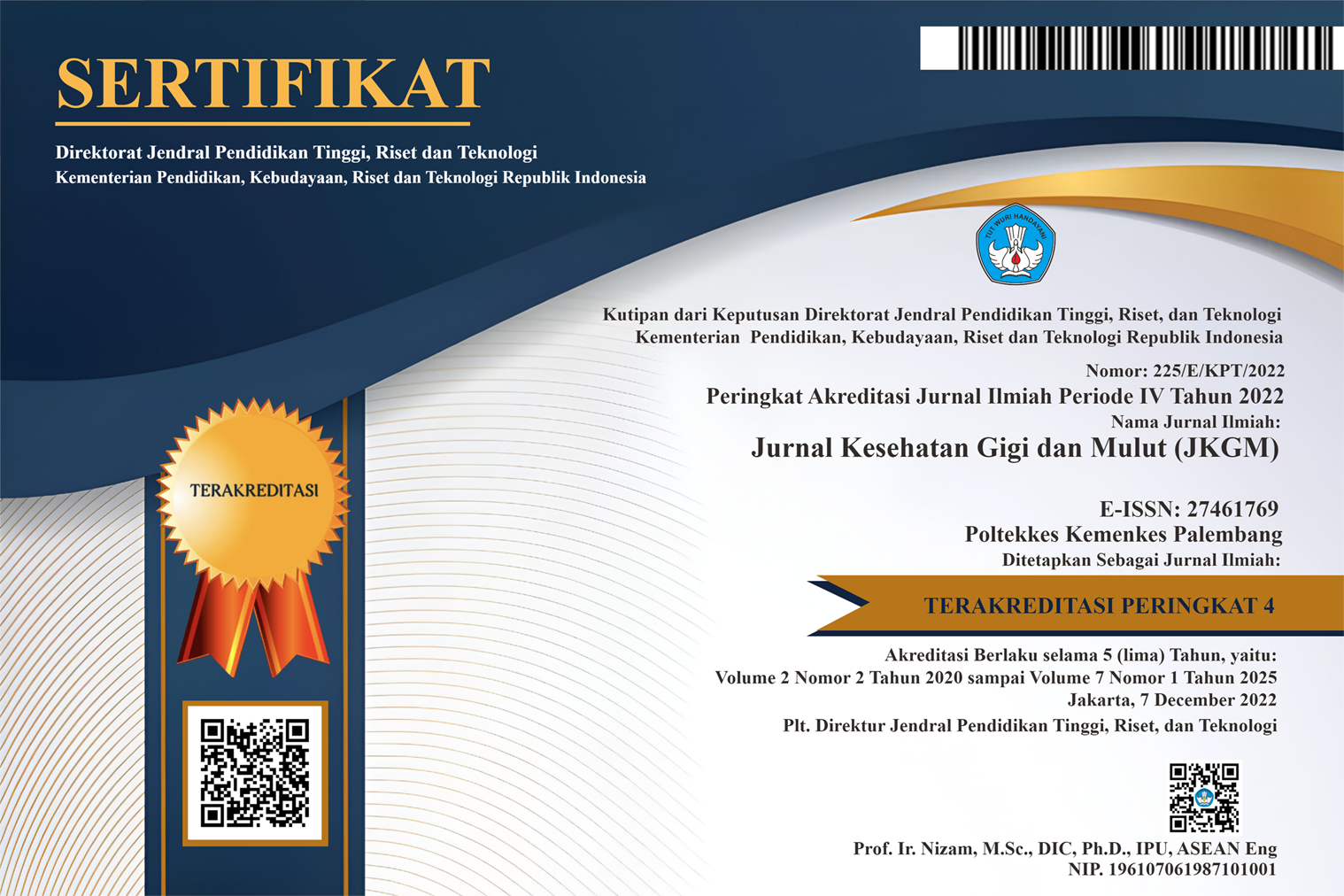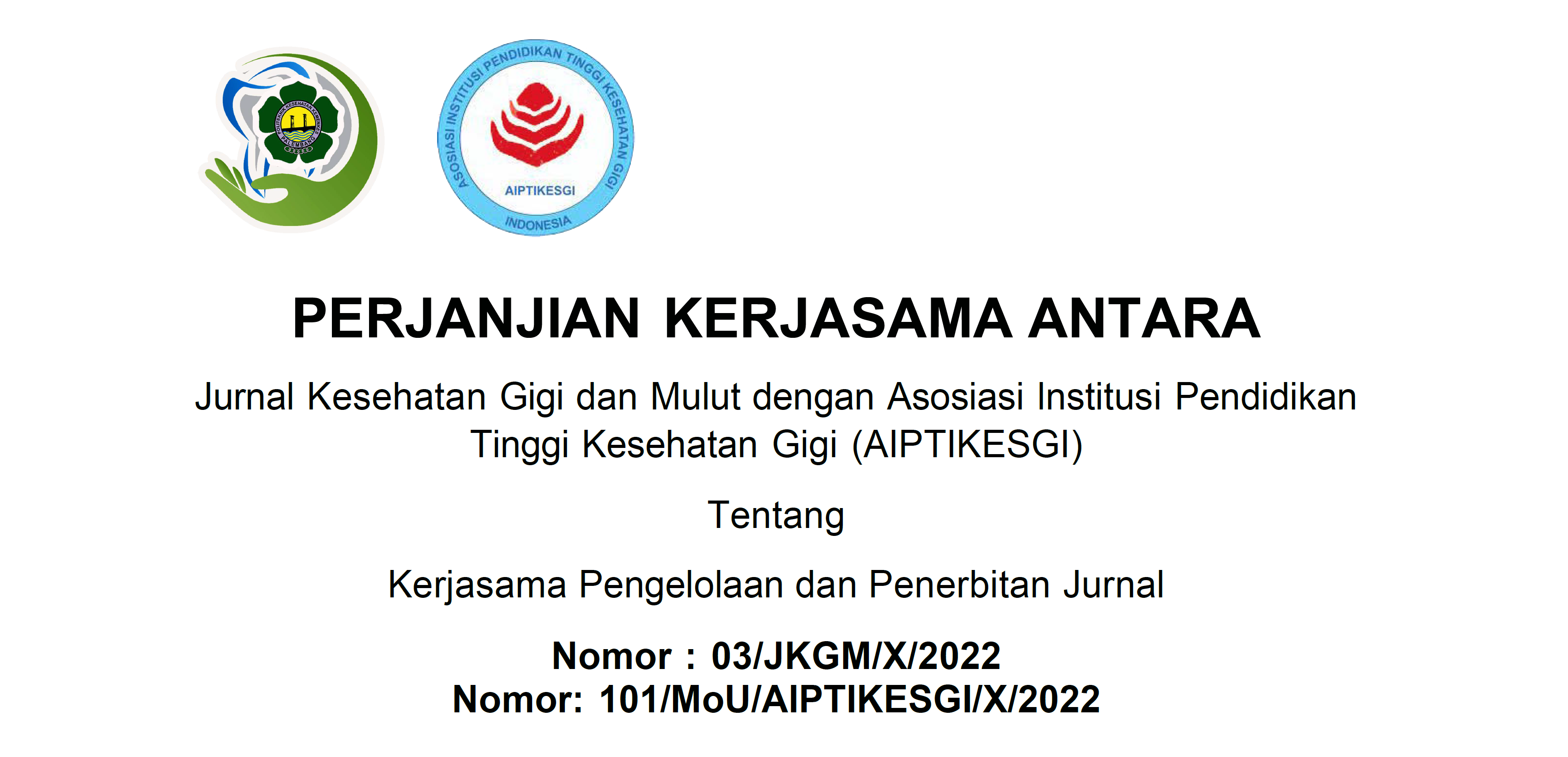AKTIVITAS ANTIBAKTERI EKSTRAK PALA DALAM MENGHAMBAT PERTUMBUHAN STREPTOCOCCUS VIDIRANS
Abstract
Background: Antibacterial is a substance that can disturb bacteria growth activity or eliminate it. Nutmeg is one of the natural substances that have antibacterial activity, such as essential oil, saponin, and alkaloid.
Objective: This study aimed to determine the antibacterial activity of nutmeg extract in inhibiting Streptococcus viridans growth.
Methods: This is a quasi-experimental with posttest only control group design. Distilled water was used as the negative control group; chlorhexidine gluconate 2% was used as the positive control group; the treatment group used nutmeg extract with concentrations of 16%, 12%, 8%, and 4%, respectively. Antibacterial activity testing using agar diffusion (Kirby-Baurer Discs) with Shapiro-Wilk test data analysis, Levene-Test, one-way ANOVA test, and Post-Hoc Test.
Result: The result showed that nutmeg extract has an antibacterial effect on the Streptococcus viridans with the most inhibitory zone, at 16% concentration (8,34 mm), while in the positive control the inhibition zone was (17.26 mm).
Conclusion: This study concluded that nutmeg extract at a concentration of 16%, 12%, 8%, and 4% have an antibacterial effect in inhibiting the growth of Streptococcus viridans, but is not as effective as chlorhexidine gluconate 2%.
Copyright (c) 2022 Jurnal Kesehatan Gigi dan Mulut (JKGM)

This work is licensed under a Creative Commons Attribution-ShareAlike 4.0 International License.
Authors who publish with this journal agree to the following terms:
- Authors retain copyright and grant the journal right of first publication with the work simultaneously licensed under a Creative Commons Attribution License that allows others to share the work with an acknowledgement of the work's authorship and initial publication in this journal.
- Authors are able to enter into separate, additional contractual arrangements for the non-exclusive distribution of the journal's published version of the work (e.g., post it to an institutional repository or publish it in a book), with an acknowledgement of its initial publication in this journal.
- Authors are permitted and encouraged to post their work online (e.g., in institutional repositories or on their website) prior to and during the submission process, as it can lead to productive exchanges, as well as earlier and greater citation of published work















